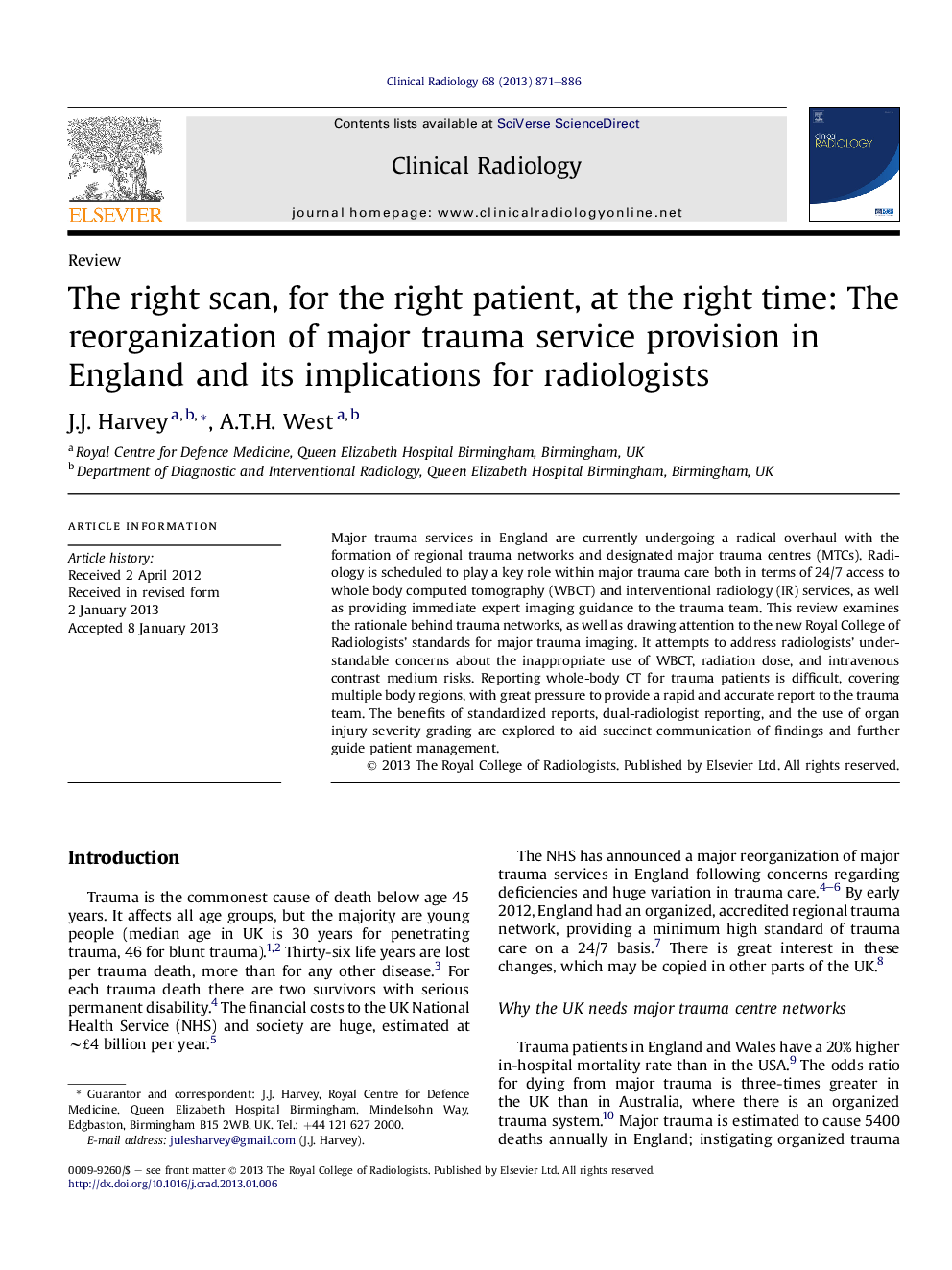| Article ID | Journal | Published Year | Pages | File Type |
|---|---|---|---|---|
| 3982547 | Clinical Radiology | 2013 | 16 Pages |
Major trauma services in England are currently undergoing a radical overhaul with the formation of regional trauma networks and designated major trauma centres (MTCs). Radiology is scheduled to play a key role within major trauma care both in terms of 24/7 access to whole body computed tomography (WBCT) and interventional radiology (IR) services, as well as providing immediate expert imaging guidance to the trauma team. This review examines the rationale behind trauma networks, as well as drawing attention to the new Royal College of Radiologists' standards for major trauma imaging. It attempts to address radiologists' understandable concerns about the inappropriate use of WBCT, radiation dose, and intravenous contrast medium risks. Reporting whole-body CT for trauma patients is difficult, covering multiple body regions, with great pressure to provide a rapid and accurate report to the trauma team. The benefits of standardized reports, dual-radiologist reporting, and the use of organ injury severity grading are explored to aid succinct communication of findings and further guide patient management.
